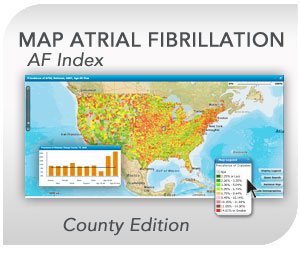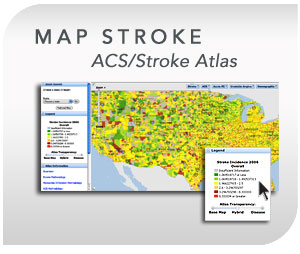Improved Detection of Silent Atrial Fibrillation Using 72-Hour Holter ECG in Patients With Ischemic Stroke
Stroke Reports Monday, October 21st, 2013STROKEAHA: October 15, 2013
Background and Purpose—Adequate diagnosis of atrial fibrillation (AF), including paroxysmal AF, is an important part of stroke workup. Prolonged ECG monitoring may improve the detection of paroxysmal, previously undiagnosed AF (unknown AF). Therefore, we evaluated systematic 72-hour Holter ECG monitoring to detect unknown AF for the workup of patients with stroke.
Methods—Unselected survivors of a stroke or transient ischemic attack (TIA) without known AF were enrolled in a prospective, multicenter cohort study of 72-hour Holter ECG monitoring in 9 German secondary and tertiary stroke centers between May 2010 and January 2011. In addition to standardized workup of stroke pathogenesis according to the German Stroke Unit protocol, all patients underwent 72-hour Holter ECG monitoring directly after admission. All ECGs were centrally analyzed by 2 independent observers. We determined the proportion of unknown AF and compared the detection rates of 72- and 24-hour monitoring. Read More




























